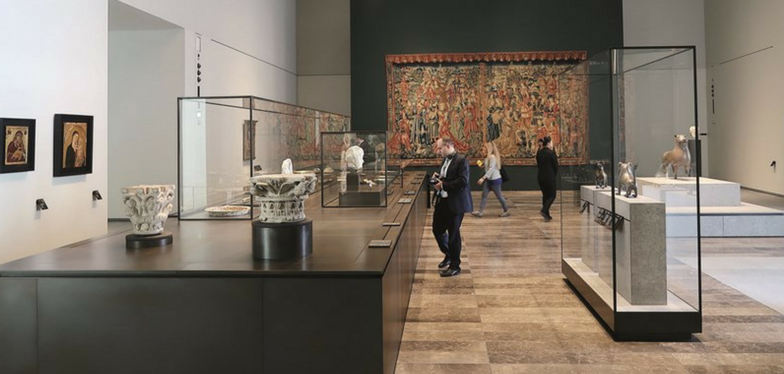Made in Belgium display cases for the Louvre Abu Dhabi
The Louvre Abu Dhabi opened its doors to the public on 11 November. Designed by the architect Jean Nouvel, this museum declares itself to be "the first universal museum in the Arab world". It covers around 97,000 square metres and its 180 square metre dome houses 55 buildings inspired by the architecture of a medina.

The skills required to construct this spectacular museum include those of the Ghent company Meyvaert, which is known throughout the world for its museum display cases created using the latest technologies and concepts.
Founded in 1826, the family-run company Meyvaert was the first industrial mirror factory in Flanders and creates glass-based solutions; it has become a global leader in museum display cases, glass constructions made of fire-resistant safety glass. And it is this highly specialised national expertise that the French architect Jean Nouvel sought for the manufacture of 105 sash display cases weighing 500 kg each. His aim was to design display cases that are almost invisible, so that the full focus is on their content.
This was more complicated than it might seem. As Steven De Tollenaere, CEO of Meyvaert, explained, "Thirteen French museums have loaned around 300 works in total, but they have very strict requirements. The display cases must be completely air-tight and able to withstand earthquakes, for example. The display cases must also be fully automated so that nobody can open them. And the opening mechanism must remain invisible." To achieve this, Nouvel and Meyvaert chose a special glass that contains no iron so it does not turn green when looked at from an angle.
This produces display cases that are six metres high and open like a sash window, i.e. the 500 kg glass front panel slides upwards and disappears into the ceiling.
This ambitious project took Meyvaert two years and the company called upon well-known Belgian names to create the glass panels, stands and podiums.
Automotion of Lovendegem produced the automated control system, while Fraxinus of Roeselaere provided the automated opening systems and Verdonck of Lokeren the paint. Several of the stands were covered in blue stone from Hainaut, cut into shape by the company Van Den Weghe from Zulte.
100% Belgian expertise fills the vast white rooms of the Louvre Abu Dhabi, which offers a route ordered by style or by civilisation; the latter highlights the universal themes and the influences shared by Europeans, Africans and Asians, from pre-history to the present day.
Click here for a glimpse inside the museum.